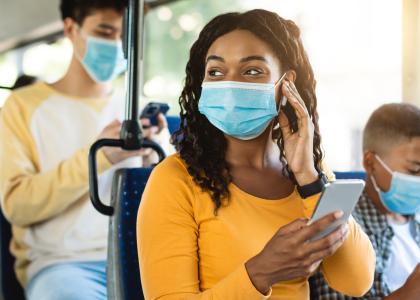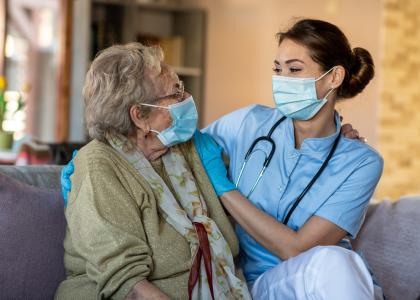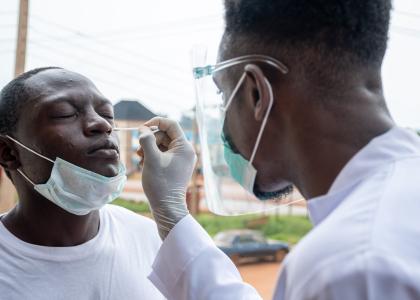Healthcare Access
Remote Patient Monitoring of Chronic Disease in Community Health Centers (REDUCE)

The goal of this study is to evaluate the biomedical effects of these RPM interventions, and to gain insights into barriers and facilitators to implementation and adoption of the programs. Our results will inform efforts to ensure that patients in community health centers can benefit from digital RPM interventions and will lay the foundation for large-scale implementation of such interventions.
Transcending COVID-19 Barriers to Pain Care in Rural America: Pragmatic Comparative Effectiveness Trial of Evidence-Based, On-Demand, Digital Behavioral Treatments For Chronic Pain

For people from the rural America with chronic diseases, the pandemic can not only worsen pain, but also it can trigger anxiety, depression, trouble sleeping, and substance use. One way doctors and health systems are reaching out is by video visits, where patients and their providers communicate online via the Internet.
Mitigating Effects of Telehealth Uptake on Disparities in Maternal Care Access, Quality, Outcomes, and Expenditures During the COVID-19 Pandemic

Telehealth represents a promising opportunity to reducing disparities in maternal health access, quality, and outcomes, given its substantial range of opportunities.
The Longitudinal Impact of the COVID-19 Pandemic and Related Multi-Level Mitigation and Contextual Factors on Health and Socioeconomic Outcomes of Individuals and Families From a Vulnerable Population

A “shovel ready” project leveraging the existing longitudinal data collected in the Fragile Families and Childhood Wellbeing Study (FFCWS), the longest running population-based US birth cohort, collected before and throughout the pandemic linked with multilevel COVID-19 related health, social and economic measures, and prospective COVID-19 impact assessments to examine these issues.
Southwest Health Equity Research Collaborative

The overarching goals of the project are to (1) document impacts of relaxed restrictions for telemedicine and mHealth; and (2) assess implementation of MAT “take-homes” for people in substance use disorder treatment in rural, underserved, and minority communities in Arizona in the wake of COVID-19.
A Technological Intervention to Improve Nutrition among Older Adult Congregate Meal Participants during COVID-19

This project extends existing congregate meal programming infrastructure and partnerships with Older Adults Technology Services (OATS) to provide a sustainable approach focused on older adult health.
StepWell: Stepped Care Mental Health and Substance Use Telehealth Services for COVID-19 Affected Patients

To meet the critical mental health challenges presented by the COVID-19 pandemic, this research will adapt and apply the Electronic Mental Wellness Tool (EmwT) that guides providers in screening patients for any mental health and substance use disorders (MHSUDs) and triaging patients to specific evidence-based treatments according to diagnostic categories.
Leveraging Community Health Workers to Improve SARS-CoV-2 Testing and Mitigation Among Criminal Justice-involved Individuals Accessing a Corrections-focused Community-based Organization

The goal of this study is to test the impact and cost-effectiveness of an intervention to mitigate SARS-CoV-2 transmission among justice-involved individuals recently released from incarceration.
Bridging Gaps in Healthcare Services for New Families Due to COVID-19

This project aims to evaluate Nursery2Home, a patient-informed digital healthcare intervention that is is specifically responsive to the COVID-19 pandemic's impact on new families, with a focus on health equity for racial/ethnic minority and low income families.
Telehealth 2.0: Evaluating Effectiveness and Engagement Strategies for Asynchronous Texting-based Trauma Focused Therapy for PTSD

Digital mental health (DMH) interventions for PTSD address well-documented barriers to traditional in-person psychotherapy or telehealth delivery of evidence-based treatments (EBTs) for PTSD, but many consumers do not remain engaged. Thus, acceptable, efficient, and engaging forms of EBTs are sorely needed.